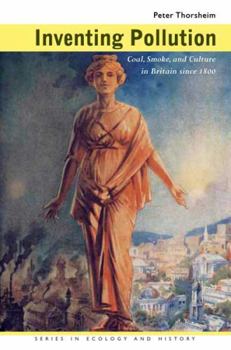Inventing Pollution: Coal, Smoke, and Culture in Britain Since 1800
(Part of the Series in Ecology and History Series)
Select Format
Select Condition 
Book Overview
Britain's supremacy in the nineteenth century depended in large part on its vast deposits of coal. This coal not only powered steam engines in factories, ships, and railway locomotives but also warmed homes and cooked food. As coal consumption skyrocketed, the air in Britain's cities and towns became filled with ever-greater and denser clouds of smoke. In this far-reaching study, Peter Thorsheim explains that, for much of the nineteenth century, few people in Britain even considered coal smoke to be pollution. To them, pollution meant miasma: invisible gases generated by decomposing plant and animal matter. Far from viewing coal smoke as pollution, most people considered smoke to be a valuable disinfectant, for its carbon and sulfur were thought capable of rendering miasma harmless. Inventing Pollution examines the radically new understanding of pollution that emerged in the late nineteenth century, one that centered not on organic decay but on coal combustion. This change, as Peter Thorsheim argues, gave birth to the smoke-abatement movement and to new ways of thinking about the relationships among humanity, technology, and the environment.
Format:Paperback
Language:English
ISBN:0821416812
ISBN13:9780821416815
Release Date:March 2006
Publisher:Ohio University Press
Length:320 Pages
Weight:1.20 lbs.
Dimensions:0.8" x 6.0" x 9.0"
Customer Reviews
0 rating





